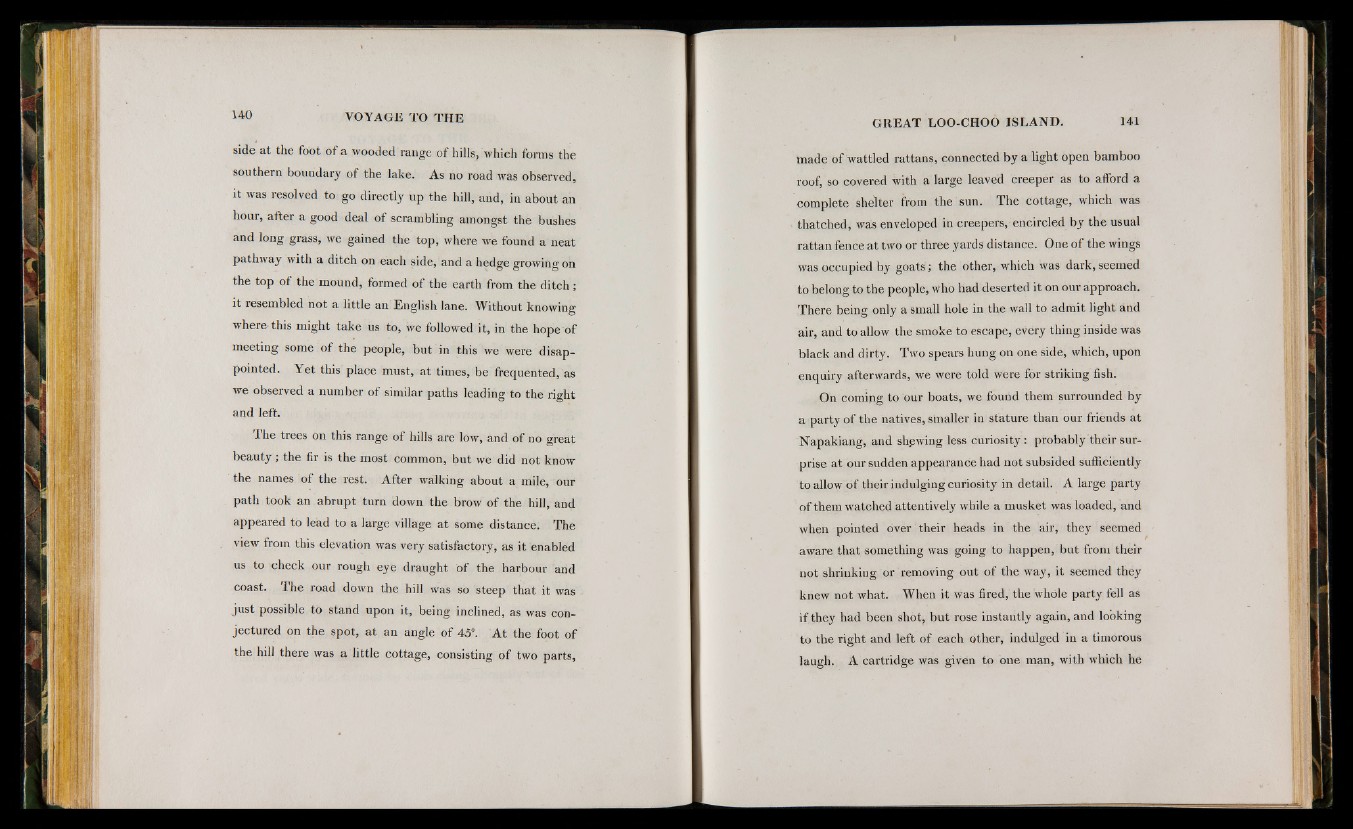
side at the foot of a wooded range of hills, which forms the
southern boundary of the lake. As no road was observed,
it was resolved to go directly up the hill, and, in about an
hour, after a good deal of scrambling amongst the bushes
and long grass, we gained the top, where we found a neat
pathway with a ditch on each side, and a hedge growing on
the top of the mound, formed of the earth from the ditch ;
it resembled not a little an English lane. Without knowing
where- this might take us to, we followed it, in the hope of
meeting some of the people, but in this we were disappointed.
Yet this place must, at times, be frequented, as
we observed a number of similar paths leading to the right
and left.
The trees on this range of hills are low, and of no great
beauty ; the fir is the most common, but we did not know
the names of the rest. After walking about a mile, our
path took an abrupt turn down the brow of the hill, and
appeared to lead to a large village a t some distancé. The
view from this elevation was very satisfactory, as it enabled
us to check our rough eye draught of the harbour and
coast. The road down the hill was so steep that it was
just possible to stand upon it, being inclined, as was conjectured
on the spot, at an angle of 45\ At the foot of
the hill there was a little cottage, consisting of two parts,
made of wattled rattans, connected by a light open bamboo
roof, so covered with a large leaved creeper as to afford a
complete shelter from the sun. The cottage, which was
thatched, was enveloped in creepers, encircled by the usual
rattan fence at two or three yards distance. One of the wings
was occupied by goats; the other, which was dark, seemed
to belong to the people, who had deserted it on our approach.
There being only a small hole in the wall to admit light and
air, and to allow the smoke to escape, every thing inside was
black and dirty. Two spears hung on one side, which, upon
enquiry afterwards, we were told were for striking fish.
On coming to our boats, we found them surrounded by
a party of the natives, smaller in stature than our friends at
Napakiang, and shewing less curiosity : probably their surprise
a t our sudden appearance had not subsided sufficiently
to allow of their indulging curiosity in detail. A large party
of them watched attentively while a musket was loaded, and
when pointed over their heads in the air, they seemed
aware that something was going to happen, but from their
not shrinking or removing out of the way, it seemed they
knew not what. When it was fired, the whole party fell as
if they had been shot, but rose instantly again, and looking
to the right and left of each cither, indulged in a timorous
laugh. A cartridge was given to one man, with which he